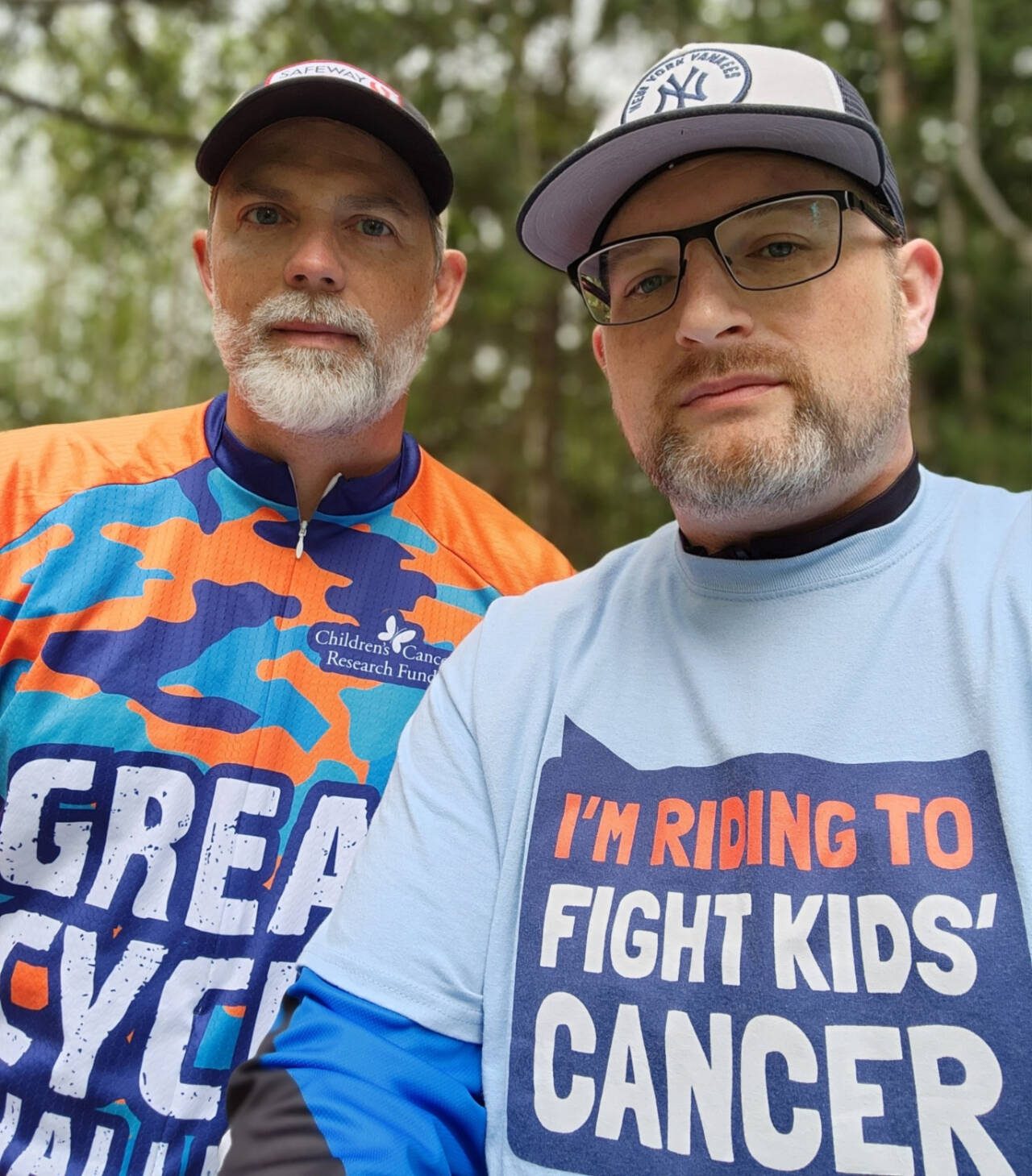By Jay Hix Jones and Josh Estes / For The Herald
As fathers who have stood at the side of children battling cancer, we’ve had a front-row seat to witness a struggle that goes far beyond the medical charts. The battle these young warriors and their families, like ours, face isn’t just during the difficult and long months of treatment; it’s a war that leaves both visible and invisible scars long after the final chemotherapy session.
Amid the physical pain and agony endured by children battling cancer, there’s a less visible yet equally profound battle being fought. It’s a battle against emotional turmoil, psychological scars, and the lifelong challenges that often accompany surviving this life-altering disease.
The courage these young heroes display in the face of adversity is nothing short of awe-inspiring. Yet, beneath their outward bravery, there exists an often-hidden emotional struggle. The psychological toll of facing such a formidable opponent at such a tender age leaves deep marks that may not always be visible but are undeniably felt.
And it’s not just the young patients who bear these unseen burdens. Families, who stand as unwavering pillars of support, are not immune to the emotional aftershocks of childhood cancer. The relief of surviving the disease is often accompanied by the daunting task of navigating a new reality, filled with post-traumatic stress, mental health challenges and the constant fear of recurrence.
Parents, who become fervent advocates and warriors in their own right, are left with a legacy of worry. The indescribable relief of seeing their child conquer the disease is tinged with the constant fear of its return. The emotional toll of such a journey is immeasurable, and it’s a weight that many carry silently, requiring their own mental health support.
But the impact of childhood cancer doesn’t stop at the immediate family circle. Siblings, who often step into roles of strength and support, bear their own burdens. Their concern for their sibling’s well-being is intertwined with feelings of confusion, jealousy and resentment — a natural response to the seemingly endless attention the patient receives.
The financial toll is another often overlooked aspect of the childhood cancer journey. The cost of treatment and travel, coupled with the potential loss of work hours, can plunge families into financial hardship. Regrettably, it’s not uncommon for the financial strain to contribute to the high rate of divorce among parents of children with cancer.
In this united journey, we are thankful for our many allies like the Snohomish County Council. The council recently supported our efforts to raise awareness with unanimous passage of a resolution declaring September as Childhood Cancer Awareness Month, exemplifying the unity of our community in recognizing the need to shed light on this pressing issue.
While the emotional, psychological, and financial scars left by childhood cancer are pervasive, what’s even more concerning is the lack of funding for research and support. Shockingly, childhood cancer research receives a fraction of the funding that adult cancers do. This disparity leaves young patients and their families fighting not only the disease itself but also the shortcomings of a system that has yet to prioritize their well-being.
As we observe Childhood Cancer Awareness Month this September, we are reminded of the urgent need for change. It’s not enough to simply survive cancer; we must ensure a life of quality and fulfillment for those who have battled it.
We, as two Cancer Dads, are on a mission, using our podcast “After Dads” to implore everyone to take action.
As two fathers, we’re on a unique journey that goes beyond the title of Dad. Celebrating dads everywhere, who leverage our personal experiences and insights to raise awareness not just about fatherhood, but also about critical men’s health issues. Both are parents to childhood cancer survivor daughters —Hunter Rose (age 10) and Reese (age 8) — serving as living testaments to the resilience and support that are crucial during life’s most challenging times.
Our mission extends beyond sharing stories of the “afters” who shaped lives after pivotal moments like a cancer diagnosis. It also emphasizes the importance of men’s health, especially as episodes are set to air in November, coinciding with Men’s Health Awareness Month.
In alignment with Childhood Cancer Awareness Month, the production for “After Dads” first season began this September. The episodes will air nationally in November on Canyon Star TV and other podcast and network platforms. The show aims to bridge the gap between the structured journey of cancer treatment and the complex path of parenthood that follows, all while addressing often overlooked aspects of men’s health.
Let’s turn our collective frustration into motivation. Let’s raise our voices for increased funding for research, better treatment protocols, and comprehensive support for families navigating the tumultuous waters of post-treatment life. It’s a responsibility we all share — to create a future where the scars of childhood cancer are acknowledged, healed and prevented.
As a community and a society, let’s stand together. Let’s shine a spotlight on the invisible scars that childhood cancer leaves behind, and let’s commit to rewriting the narrative. Let’s make this September the month we join hands, make a difference, and ensure that no child’s battle against cancer goes unnoticed or unsupported.
Our daughters are now cancer-free, and the “After Dads” podcast is not just a show; it’s a movement aimed at enriching lives and broadening perspectives.
Jay Hix Jones and Josh Estes are Snohomish County residents and co-hosts of the “After Dads” podcast. For more information and to join the conversation, go to www.afterdads.com.
Talk to us
> Give us your news tips.
> Send us a letter to the editor.
> More Herald contact information.

























